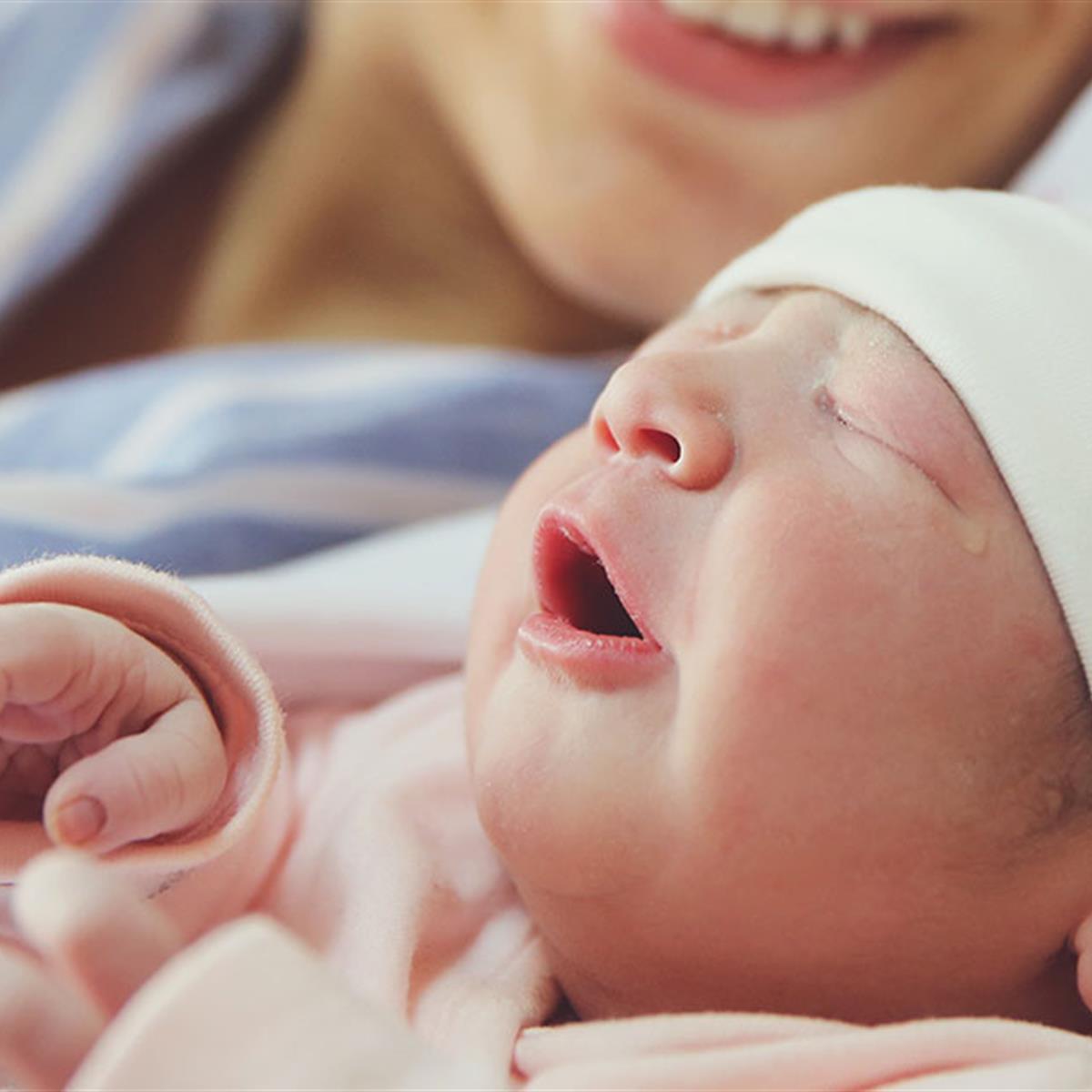Understanding What It Means To Be **Born At A Very Young Age**
It is a rather curious phrase, "born at a very young age," isn't it? It sounds almost like a riddle, or perhaps a simple truth stated in a way that makes you pause and think. Yet, it captures something profoundly important about every single one of us. We all start life at its very beginning, a tiny spark of existence that grows into something more. This idea of being born at a very young age points to the incredible, foundational moments that shape everything that comes after. It's about those first breaths, the initial connections, and the very earliest steps on a long journey.
This initial period, you know, is when so much is happening inside and around a new person. It’s a time of rapid learning, of discovering the world through fresh eyes and tiny hands. The way we are cared for, the sounds we hear, the feelings we experience – these things, they all contribute to the blueprint of who we become. It is a period of immense change, a time when a person's basic ways of interacting with the world are being set.
So, when we consider what it truly means to be born at a very young age, we are really talking about the amazing process of early development. We are thinking about the very start of a person's story, the chapters that lay down the groundwork for all the adventures that follow. It's a universal experience, yet each person's early days are, in a way, quite unique.
Table of Contents
- The Early Days: Shaping What Comes Next
- Foundations of Growth and Learning
- The Importance of Early Connections
- Nurturing the Youngest Among Us
- The Role of Support in Early Life
- Reflecting on Our Own Beginnings
- Looking Ahead from the Start
- Frequently Asked Questions
The Early Days: Shaping What Comes Next
Every person starts life as a baby, more or less, and this beginning time is incredibly busy for the brain and body. From the moment of birth, and even before, a person is taking in so much information. They are learning about their surroundings, about sounds, about touch, and about the people who care for them. This early period, you see, sets the stage for all future learning and behavior.
Think about it: a newborn, just born at a very young age, is already a little sponge. They are absorbing everything around them. Their brains are making connections at an astonishing rate, building the pathways that will allow them to think, feel, and move. This rapid development is a truly remarkable thing to witness, and it continues for quite some time after birth.
What happens during these first few months and years can have lasting effects. The experiences, both good and bad, leave their mark. A secure and loving environment, for instance, helps a person feel safe enough to explore and learn. Conversely, stress or lack of support can make things harder. It is, in some respects, about setting a strong base.
Foundations of Growth and Learning
The idea of being born at a very young age really brings home the point that development is a process, not a sudden event. It begins at conception and continues through infancy and childhood. During these earliest years, a person acquires fundamental skills. They learn to smile, to reach, to crawl, and eventually, to walk and talk. These are big milestones, and they happen because the brain is growing and adapting so quickly.
For example, a baby learns to recognize faces and voices. They start to understand that certain sounds mean certain things. This early communication, actually, is vital for their social and emotional growth. They also begin to figure out how their body works, how to move it to get what they want. These physical and mental skills are the building blocks for more complex actions later on.
We see this pattern of laying down foundations in many areas, even beyond human development. Consider, for instance, how a new idea or a new system begins. Like the way Google's AI assistant, Gemini, started. It was "born" at a very young age in its development, with its founders being "early investors." It began with "an enhanced reasoning mode that uses cutting edge research techniques in parallel thinking and reinforcement learning." That initial core, that very young stage, was crucial for its ability to "significantly improve Gemini’s ability to solve complex problems" later on. It shows how the very first version, the initial core, is so important for what it can do later.
The Importance of Early Connections
Human beings are social creatures, and this is apparent from the moment we are born. The connections a baby makes with their caregivers are, truly, the first and most important relationships they will ever have. These bonds provide comfort, safety, and a sense of belonging. A baby learns to trust when their needs are met consistently and lovingly.
When a baby cries, and someone responds, they learn that they are heard and that they matter. This interaction, you know, builds a secure attachment. This type of attachment helps a person feel confident enough to explore the world, knowing they have a safe base to return to. It shapes how they will form relationships throughout their life.
These early interactions are not just about feeding and changing diapers. They are about talking, singing, playing, and just being present with the baby. These moments, even the very simple ones, create a rich environment for growth. They help a person feel seen and valued from their very earliest days.
Nurturing the Youngest Among Us
Providing the right kind of support for those born at a very young age is a big responsibility, yet it is also a great joy. It means creating an environment where they can feel safe, loved, and encouraged to learn. This support can come in many forms, from providing good nutrition to offering plenty of opportunities for play and exploration.
It is about listening to their cues, even before they can speak words. It is about responding with kindness and patience. For example, when a baby makes sounds, responding with your own words helps them learn about language. When they try to move, giving them space to do so helps them develop their physical skills. These simple acts, in a way, are very powerful.
Think about how we protect things that are new and delicate. We give them extra care. The same idea applies to people in their earliest stages of life. We want to give them the best possible start, so they can grow into healthy, happy individuals. This is about being present and attentive to their needs.
The Role of Support in Early Life
Support for those born at a very young age extends beyond just the immediate family. Communities and broader systems also play a very important part. Access to good healthcare, early education programs, and safe places to play can make a huge difference. These things help create a strong safety net for all children.
When we talk about support, it is also about providing information and education to caregivers. Knowing what to expect during different stages of development can help parents and others feel more confident. Resources that offer tips on positive parenting or how to handle common challenges are, obviously, very helpful.
Consider the importance of prevention and early detection in other areas. For example, "The forms of preventing STIs include practicing safe sex, undergoing regular detection tests, avoiding intravenous drug use, and having access to information and education." Just like with health, providing early support and information in a child's life can prevent bigger issues later. It's about giving people the tools and knowledge they need from the very beginning. Learn more about early childhood development on our site.
Reflecting on Our Own Beginnings
Thinking about being born at a very young age can also make us reflect on our own lives. What were our earliest experiences like? How might they have shaped who we are today? It is not about dwelling on the past, but rather about gaining a better sense of ourselves and our own journey.
Perhaps you remember stories your parents told you about your babyhood. Or maybe you have noticed certain traits in yourself that seem to have been there from the start. This reflection can be a way to connect with our earliest selves, and to appreciate the path we have traveled. It can also help us understand others better.
This personal reflection can be quite powerful. It helps us see the threads that connect our very first moments to our present lives. It is a reminder that every step, even the smallest ones taken at the very beginning, contributes to the whole picture.
Looking Ahead from the Start
The phrase "born at a very young age" is a simple way to remind us of the incredible journey that begins at birth. It highlights the wonder and the importance of those earliest years. These initial stages are not just a prelude to life; they are life itself, full of discovery, growth, and the laying down of essential foundations. It is a time that deserves our full attention and care.
As we move forward, understanding the importance of this early period can guide our actions, whether we are parents, educators, or simply members of a community. It helps us see the value in supporting every person from their very start. This focus on early life is, basically, an investment in the future of everyone.
For more insights into the early years and how they shape us, you might want to explore resources on child development. A good place to start could be the Centers for Disease Control and Prevention's child development information. Also, feel free to link to this page for more articles like this one.
Frequently Asked Questions
What is the most important age for a child's development?
While every stage of development is important, the period from birth to age five is often seen as especially critical. This is when the brain grows and changes most rapidly, setting up many of the connections that will last a lifetime. So much learning happens during these first few years.
How do early experiences shape a person's life?
Early experiences, both positive and challenging, can really influence a person's brain development, their emotional well-being, and how they interact with others. A stable, caring environment helps build resilience and strong social skills, while difficult early experiences can sometimes make things harder later on. It is, in a way, about building a person's inner strength.
Why are the first few years of life so important?
The first few years are important because they are a time of incredibly fast growth and learning. During this period, a person develops their basic physical, social, emotional, and thinking skills. These foundational skills are what they will build upon for the rest of their lives. It is like laying the very first bricks for a big building.

Stems - Biology Online Tutorial

Top 999+ new born baby images – Amazing Collection new born baby images

Where Should Your Baby Be Born? 6 Things to Look for When Choosing